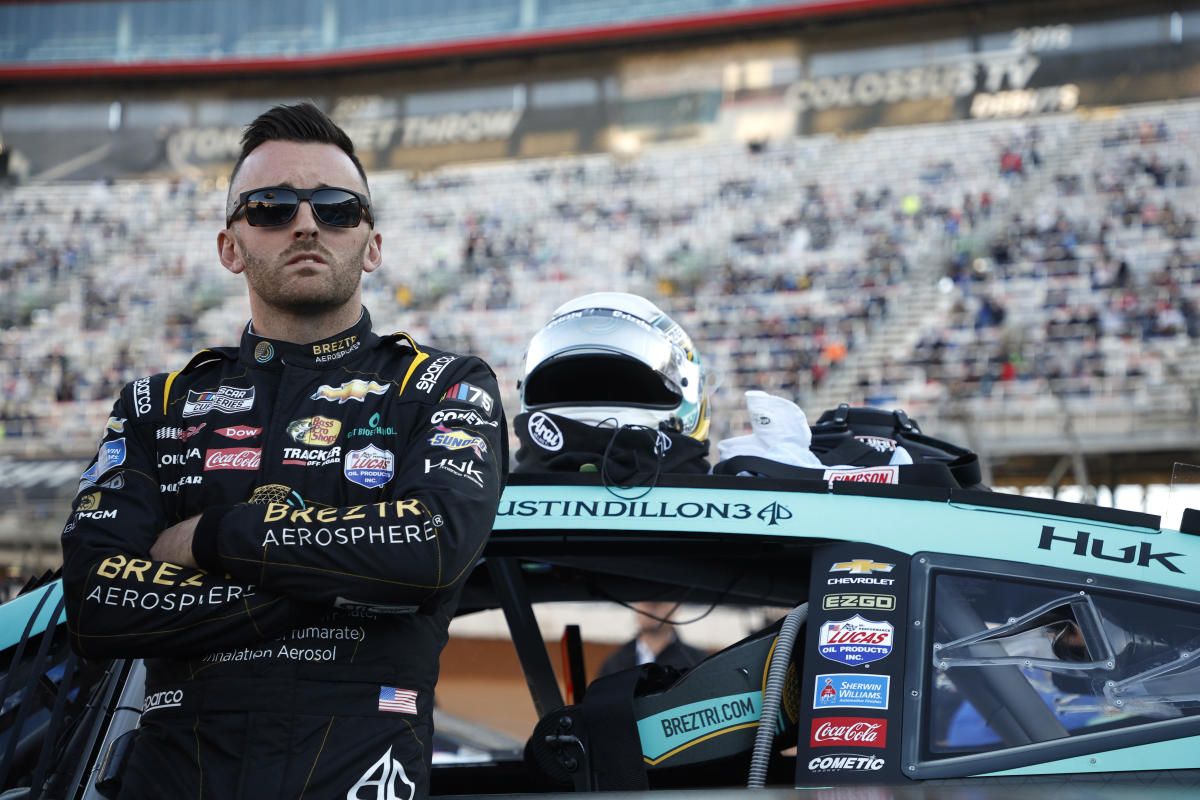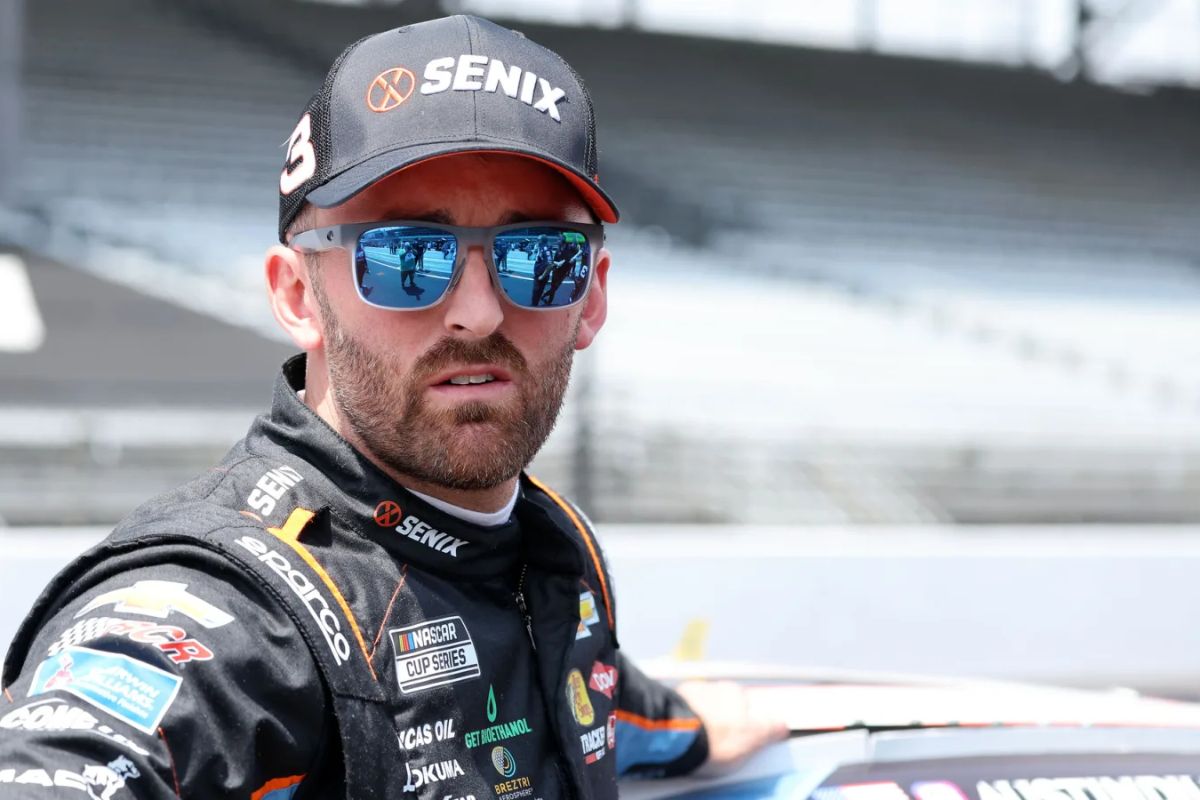Austin Dillon’s Final Appeal Rejected: Austin Dillon‘s recent appeal rejection regarding his penalty has placed his playoff aspirations in a precarious position as he prepares for the crucial race at Darlington. The 25-point deduction he faces necessitates a tactical overhaul, compelling him to focus on tire management, pit strategies, and establishing an early rhythm during the race. As the tension mounts, Dillon’s ability to adapt to these challenges will be essential for his chances of advancing. The implications of this situation extend beyond the immediate race, raising questions about his long-term competitiveness in the series.
Key Highlights
- Austin Dillon’s final appeal regarding a penalty for on-track actions has been denied, maintaining the penalty’s impact on his playoff standing.
- The penalty included a 25-point deduction, significantly affecting Dillon’s postseason eligibility and overall season ranking.
- Dillon’s spotter, Brandon Benesch, received a suspension reduced to one race, following the infraction’s confirmation by NASCAR data.
- To salvage his playoff hopes, Dillon must perform exceptionally well at the upcoming crucial race in Darlington.
- Effective tire management and strategic communication with his crew chief will be essential for Dillon’s success in the race.
Appeal Decision
The recent denial of Richard Childress Racing‘s final appeal regarding Austin Dillon’s penalty marks an essential moment in the team’s playoff aspirations. The decision, rendered by Bill Mullis, the Final Appeal Officer, emphasizes the rigorous enforcement of NASCAR’s regulatory framework. This ruling confirms that the penalty assessed at Richmond Raceway will remain in effect, considerably impacting Dillon’s position as the series progresses toward the playoffs.
The implications of this denial extend beyond mere standings; it reflects the complex interplay between team tactics and regulatory compliance within the NASCAR ecosystem. Richard Childress Racing, known for its competitive edge and tactical skill, now faces a formidable challenge in recalibrating its approach.
The appeal process, while an avenue for teams to contest penalties, serves as a reminder of the stringent oversight that governs the sport. Dillon’s team must now shift its focus toward upcoming races, particularly the crucial event at Darlington, where performance is paramount.
This setback not only tests the resilience of the driver and team but also highlights the vital nature of adaptive strategies in racing. The inability to overturn the penalty serves as a cautionary tale for other teams regarding the importance of adhering closely to regulations.
Penalty Details
Penalties in NASCAR serve as vital instruments for maintaining fair competition and enforcing rules. In the case of Austin Dillon, his postseason eligibility for the NASCAR Cup Series was greatly impacted following a controversial incident during the last lap at Richmond. The actions that transpired resulted in a severe penalty, stripping Dillon of his chance to compete for the championship. This disciplinary measure reflects NASCAR’s commitment to uphold integrity within the sport.
As part of the penalty, Dillon’s team faced a deduction of 25 points in both the driver and owner championship standings. Such point reductions can have profound implications on a driver’s season performance and their overall ranking in the series. The loss of points not only affects Dillon’s immediate playoff aspirations but also sets a precedent for how infractions are treated moving forward.
Additionally, Brandon Benesch, Dillon’s spotter, received a suspension initially set for three races due to inappropriate radio communication during the event. However, this suspension was subsequently reduced to just one race during the appeal process, highlighting the subtleties involved in penalty assessments and their potential for modification based on the context of the infractions.
Through these penalties, NASCAR aims to deter future violations and maintain a competitive field. The ramifications of Dillon’s penalty will echo throughout the remainder of the season, particularly as he approaches the vital race at Darlington, where his playoff hopes now hinge on performance under strain.
Explanation of the Penalty
Following the notable repercussions stemming from the incident at Richmond, a thorough explanation of the penalty imposed on Austin Dillon and his team reveals the underlying rationale for NASCAR’s disciplinary actions. The infraction, confirmed by data from the SMT and IDAS systems, indicated that Dillon’s actions on the last lap constituted a violation of NASCAR rules, specifically as outlined in Rule 12.3.2.1.B. This rule emphasizes that race finishes must remain unencumbered by violations that negatively impact the integrity of the sport.
The penalty was enforced under multiple sections of the NASCAR Rule Book, reflecting the seriousness of Dillon’s actions. Elton Sawyer, NASCAR’s senior vice president of competition, articulated that Dillon’s deliberate wrecking of two competitors, Joey Logano and Denny Hamlin, illustrated a blatant disregard for safety and sportsmanship, therefore warranting disciplinary action.
| Aspect | Details |
|---|---|
| Rule Violated | 12.3.2.1.B – Eligibility |
| Actions Taken | Wrecked Logano and Hamlin on final lap |
| Penalty Sections | 4.4.B (Code of Conduct), 10.1.A (General Procedure) |
The imposition of this penalty serves as a reminder that NASCAR prioritizes the integrity of racing and the safety of its participants. As the sport evolves, maintaining these standards is essential for upholding competitive fairness and promoting respect among drivers.
Next Steps for Dillon
Facing the urgent need for redemption, Austin Dillon’s path to the postseason hinges on a decisive victory at Darlington Raceway during the regular season finale. With all appeal options exhausted, Dillon’s playoff aspirations now rest solely on his performance in this vital race. The stakes are monumental; a win would not only guarantee him a place in the playoffs but also reinforce his competitive skill in a high-pressure environment.
To secure victory, Dillon must adopt a multifaceted strategy that utilizes both his driving skills and his team’s mechanical capabilities. Key to his success will be understanding the unique characteristics of Darlington, known for its challenging oval layout and abrasive surface.
Prioritizing tire management and best pit strategies will be fundamental, as these factors can greatly influence race outcomes at this track.
Furthermore, Dillon should focus on building a rhythm early in the race, allowing him to gauge the performance of his car and adjust his driving style accordingly.
Communication with his crew chief will be vital, as timely adjustments to the car’s setup can improve competitiveness throughout the race.
News in Brief: Austin Dillon’s Final Appeal Rejected
The denial of Austin Dillon’s final appeal highlights the precarious nature of competitive racing and its impact on playoff aspirations. With a 25-point deduction, Dillon’s path to recovery necessitates tactical focus on tire management, pit efficiency, and establishing an ideal race rhythm. The upcoming race at Darlington represents a critical opportunity for Dillon to capitalize on these strategies and improve his standings, thereby preserving playoff viability amid escalating tension and limited time for recovery.
ALSO READ: Steve Phelps Breaks Silence on Austin Dillon’s Penalty: The Truth Behind NASCAR’s Tough Stance



